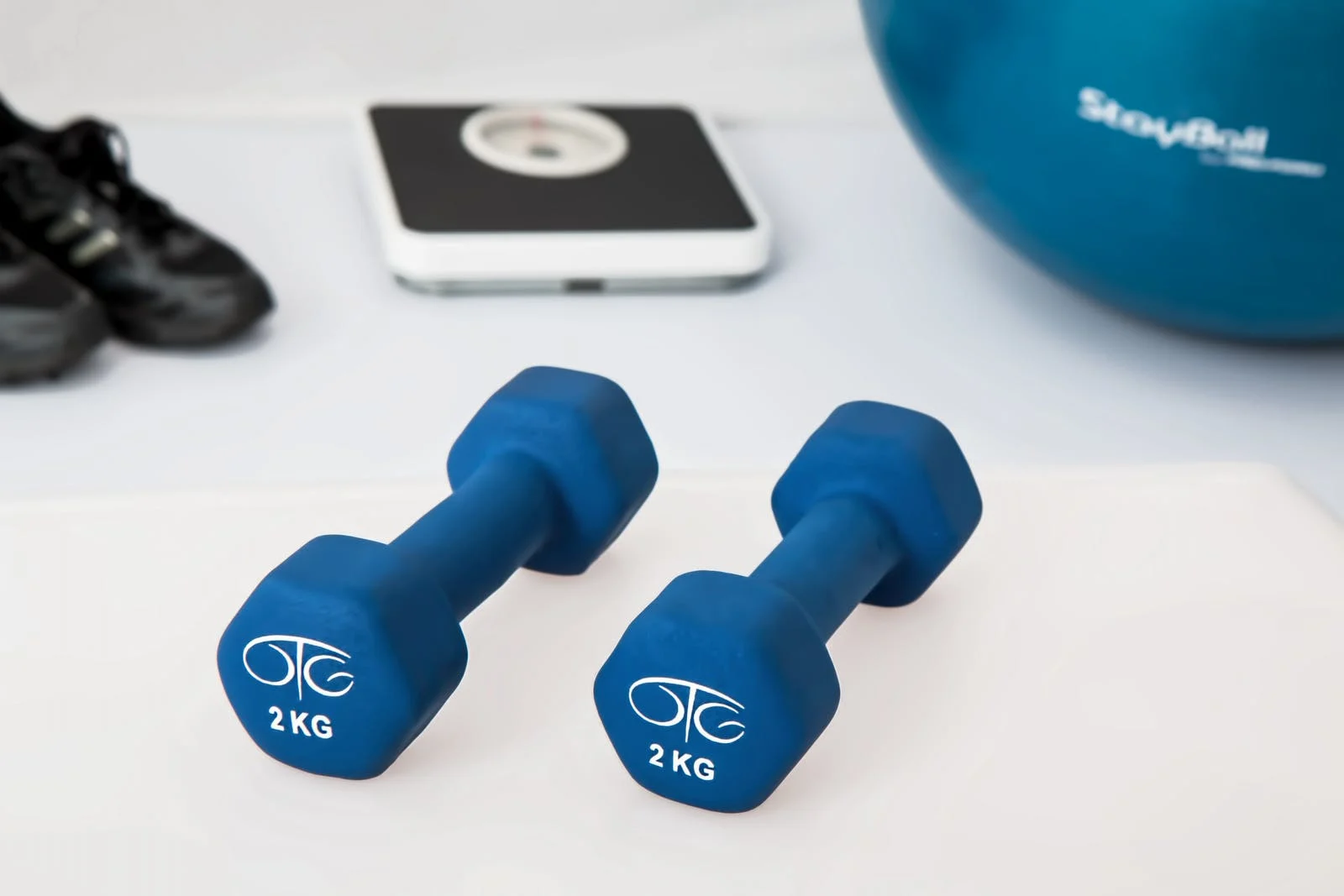Hidden Health Issues That Don’t Announce Themselves
A Comprehensive Guide to Different Breathwork Techniques
With each intentional inhale and exhale, you create space for healing, clarity, and transformation. Whether you seek relaxation, energy, or...
Seeking Health Improvements? Make These Changes in Your Home and Routine
Switching to Safer, High-Quality Products
Most people don’t think twice about their household products, but many common cleaners, personal care items, and even cosmetics contain ingredients that aren’t exactly great for health. Harsh chemicals, artificial fragrances, and unnecessary additives can irritate the skin, affect air quality, and even disrupt hormone balance. Making the switch to research-driven, high-quality products with safer ingredients is an easy way to create a healthier home environment. Given this, it is important to opt for companies that focus on super-concentrated formulas and high-quality ingredients. Melaleuca company, founded by the famous Frank VanderSloot, offers a variety of personal care items, nutrition products, home cleaning solutions, and cosmetics that are designed to be effective without relying on harsh chemicals. Using products that are backed by research reduces unnecessary exposure to toxins, helping you maintain a cleaner, safer, and healthier lifestyle without sacrificing performance. (more…)EE System: Revolutionising Your Wellness Routine
Identify Areas That Need Improvement
Before making changes, it's essential to identify which areas of your routine are not serving you well. Ask yourself:- Are there specific times of the day when you feel less productive?
- Do certain habits contribute to stress or frustration?
- Are there areas where consistency is lacking?
Why Consistency Matters More Than Perfection in Healthy Habits
Power of Consistency in Daily Health Practices
Consistency is the secret ingredient to lasting success when it comes to health and wellness. Rather than making dramatic changes overnight, small, repeated efforts build momentum over time. For example, walking for 20 minutes every day, choosing water over sugary drinks at lunch, or practicing mindfulness for five minutes each evening are all simple actions that, when done regularly, create a noticeable impact. The key is sticking with these habits even on days when motivation is low. The same goes for nutritional needs; consistent behavior, whether following a balanced diet or using supplements, can often yield positive results. This philosophy is reflected in the approach of wellness leaders like USANA, who have supported healthier lifestyles for over three decades. They emphasize building sustainable habits with reliable nutritional solutions that fit into everyday routines. Millions worldwide trust their products to support their health and the well-being of their families because they focus on consistency, not unrealistic ideals. It’s these small, regular steps that pave the way for long-term success.Regular health checkups are another vital aspect of maintaining consistency in daily health practices. Scheduling routine visits with healthcare professionals ensures that potential health issues are detected early, allowing for timely intervention and preventive care. According to this professional dentist in Springfileld VA, just like maintaining a balanced diet or staying active, regular screenings, dental checkups, and wellness exams contribute to overall well-being. By integrating these checkups into your routine, you reinforce the habit of prioritizing your health, making it easier to stay on track with your wellness goals.
(more…)Top Tips for Boosting Your Health and Well-Being
How to Transition to a Healthier Lifestyle Without Feeling Overwhelmed
Tracking your progress is a powerful way to stay motivated. It helps you see how far you’ve come and identify...
Stay Protected in Any Weather
One of the standout features of enclosed mobility scooters is their ability to shield you from the elements. Whether it’s scorching heat, a sudden downpour, or even a chilly breeze, the enclosed design keeps you snug and dry. Imagine being able to run errands or visit friends without worrying about the forecast. For those living in regions where weather is unpredictable, this level of protection can be a game-changer. It’s not just about convenience—it’s about maintaining your routine without compromise. An enclosed mobility scooter allows you to get out and about on your terms, no matter what’s happening outside. (more…)The Impact of Lifestyle on Fertility: Insights From Reproductive Medicine Clinics
 The complex interplay between lifestyle and fertility has become an area of significant interest within reproductive medicine. Prevailing research underscores the influence of dietary habits, physical activity, stress management, and sleep patterns on reproductive health, while harmful behaviours like smoking and alcohol consumption further complicate the fertility landscape. As we uncover these intricacies, it invites a deeper exploration into how lifestyle modifications can potentially enhance fertility outcomes. With this understanding, we stand on the precipice of a transformative approach to fertility management, one that encompasses a broader, more holistic view of reproductive health.
The complex interplay between lifestyle and fertility has become an area of significant interest within reproductive medicine. Prevailing research underscores the influence of dietary habits, physical activity, stress management, and sleep patterns on reproductive health, while harmful behaviours like smoking and alcohol consumption further complicate the fertility landscape. As we uncover these intricacies, it invites a deeper exploration into how lifestyle modifications can potentially enhance fertility outcomes. With this understanding, we stand on the precipice of a transformative approach to fertility management, one that encompasses a broader, more holistic view of reproductive health.
Understanding Fertility: A Brief Overview
Fertility, a crucial aspect of human reproduction, entails far more than the simple act of conceiving a child. It is a complex biological process that involves several coordinated events in both male and female bodies. Misunderstandings about fertility have given rise to numerous fertility myths, which often misguide people and obscure the true scientific factors affecting fertility. The development of reproductive technology, from assisted reproductive techniques (ART) like in-vitro fertilization (IVF) to advanced genetic screenings, has revolutionized our understanding of fertility. These technologies have not only offered hope to countless couples struggling with infertility, but also helped debunk many fertility myths that have long persisted. One common myth is that age does not greatly impact fertility. However, scientific evidence overwhelmingly shows that fertility declines with age, particularly for women. Reproductive technology tools, such as ovarian reserve testing, have provided tangible proof of this phenomenon. (more…)Nine Steps You Can Take to Prevent Diseases
Sustainable Practices for a Healthy Lifestyle
10 Essential Health Tips You Should Know for a Happier, Healthier Life
Get Regular Screenings
Regular health screenings are crucial for early detection of illnesses. It's important to stay ahead of potential issues, from routine blood tests to more specific exams like cholesterol checks or a simple strep test. A strep throat infection, for example, is highly contagious and can escalate if not treated quickly. Fortunately, Googling strep tests near me is now easier than ever, with most urgent care centers and clinics offering fast and accurate testing. Don’t wait for symptoms to worsen—early detection can save you from a lot of discomfort. (more…)10 Science-Backed Lifestyle Changes to Help You Live a Longer, Healthier Life
Embracing Balanced Nutrition for Sustained Well-being
 A balanced diet is the cornerstone of a healthy lifestyle. Incorporating various foods from all the food groups ensures that your body gets the nutrients it needs. Increasing the intake of fruits, vegetables, whole grains, lean proteins, and healthy fats contributes to better health and helps prevent chronic diseases.
Understanding portion sizes and the significance of moderation can prevent overeating and weight gain. It is also important to stay hydrated throughout the day. Water supports metabolic processes and helps eliminate waste.
Knowing your body's calorie and nutritional requirements is crucial for maintaining a balanced diet. If you're unsure where to begin, seeking guidance from a registered dietitian can be a great starting point. For wellness products and nutritional supplements, SkinnyFit offers quality, all-natural health and wellness products—visit skinnyfit.com to explore their range.
Lastly, preparing your meals can give you more control over the ingredients and help you stick to a nutritious diet. Planning can also prevent impulsive decisions leading to unhealthy eating habits.
(more…)
A balanced diet is the cornerstone of a healthy lifestyle. Incorporating various foods from all the food groups ensures that your body gets the nutrients it needs. Increasing the intake of fruits, vegetables, whole grains, lean proteins, and healthy fats contributes to better health and helps prevent chronic diseases.
Understanding portion sizes and the significance of moderation can prevent overeating and weight gain. It is also important to stay hydrated throughout the day. Water supports metabolic processes and helps eliminate waste.
Knowing your body's calorie and nutritional requirements is crucial for maintaining a balanced diet. If you're unsure where to begin, seeking guidance from a registered dietitian can be a great starting point. For wellness products and nutritional supplements, SkinnyFit offers quality, all-natural health and wellness products—visit skinnyfit.com to explore their range.
Lastly, preparing your meals can give you more control over the ingredients and help you stick to a nutritious diet. Planning can also prevent impulsive decisions leading to unhealthy eating habits.
(more…)Beat the Heat: Managing Varicose Veins in Summer
While home remedies and lifestyle changes can help manage varicose veins, there are times when it's important to consult a...
Lifestyle Changes to Manage PAD: Diet, Exercise, and Smoking Cessation
Understanding PAD
PAD affects the arteries outside the brain and heart, usually in the legs. This happens due to plaque buildup. This narrowing restricts blood flow, causing symptoms like: - Leg pain - Cramping - Ulcers Recognizing these symptoms is key for early detection and management. Consult an interventional radiologist for accurate diagnosis and reduced pain treatment plans. (more…)Everyone Can Have a Healthy Smile: Practical Tips for Optimal Oral Health
 Table of Contents
Table of Contents
- The Importance of Oral Health
- Routine Dental Checkups
- Proper Brushing and Flossing Techniques
- The Impact of Diet on Oral Health
- Lifestyle Choices Affecting Oral Health
- Benefits of Preventative Care
It is essential to recognize the diverse manifestations of addiction that have infiltrated our society....
Early Birds More Likely to Be Conscientious, Religious and Satisfied with Life
Brigham Study Suggests Multivitamins May Help Protect Cognitive Function in Adults
AUA23: Study Examines Whether Alkaline Water Drinks Really Provide Extra Anions
Dog Walking Sends Thousands to Emergency Rooms Each Year
How to Get Rid of Stubborn Fat Pockets with the Right Diet and Exercise
The hectic nature of modern living, especially if you’re very much immersed in the changing world of business, can result...




























